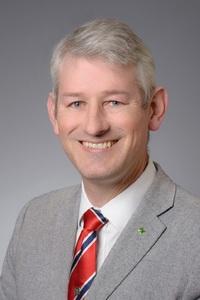Announcement
Call for Nominations - VCLA Awards 2018 for Master and Bachelor theses (deadline: 15 March)
CALL FOR NOMINATIONS
VCLA International Student Awards 2018 in Memory of Helmut Veith
The Vienna Center for Logic and Algorithms of TU Wien (Vienna University of Technology), calls for the nomination of authors of outstanding theses and scientific works in the field of Logic and Computer Science, in the following two categories:
Submitted by Anonymous on February 8th, 2018
ACM SIGBED Paul Caspi Dissertation Award
http://sigbed.blogspot.fr/p/awards.html
Nominations should be submitted via EasyChair: https://easychair.org/conferences/?conf=caspiaward18
Deadline: March 1, 2018
The Paul Caspi Memorial Dissertation Award is a SIGBED award established in 2013. The award recognizes outstanding doctoral dissertations that significantly advance the state of the art in the science of embedded systems, in the spirit and legacy of Dr. Paul Caspi's work.
Submitted by Anonymous on January 26th, 2018
CALL FOR NOMINATIONS
ACM SIGBED Paul Caspi Dissertation Award
http://sigbed.blogspot.fr/p/awards.html
The nomination should be submitted via EasyChair at https://easychair.org/conferences/?conf=caspiaward16
by March 1, 2016.
Submitted by Anonymous on January 27th, 2016
SIGBED Paul Caspi Memorial Dissertation Award
http://sigbed.blogspot.fr/p/awards.html
The Paul Caspi Memorial Dissertation Award is a new SIGBED award established in 2013. The award will recognize outstanding doctoral dissertations that significantly advance the state of the art in the science of embedded systems, in the spirit and legacy of Dr. Paul Caspi's work.
Submitted by Anonymous on March 2nd, 2015
The IEEE Council on Design Automation (CEDA) invites nominations for the position of Editor-in-Chief (EiC) for the IEEE Embedded Systems Letters (ESL). Self-nominations are permitted.
ESL is a quarterly published forum for rapid dissemination (4 to 6 weeks) of short papers in the area of embedded systems and software.
Submitted by Anonymous on November 26th, 2014
Announcement
ARPA-E TRANSNET RFI
The Advanced Research Projects Agency Energy (ARPA-E) is seeking researchers interested in partnering on “Traveler Response Architecture using Novel Signaling for Network Efficiency in Transportation” (TRANSNET). The overall objective of the TRANSNET program is to reduce energy use in a multi-modal, urban transportation network through network control mechanisms employing personalized signaling. More information is located under RFI-0000013 located at https://arpa-e-foa.energy.gov/.
 Submitted by david kuehn on October 22nd, 2014
Submitted by david kuehn on October 22nd, 2014
Connected Vehicle Pilot Deployment Program; Request for Information
A Notice by the Federal Highway Administration on 03/12/2014
Submitted by Anonymous on March 25th, 2014
==============================================
SIGBED Paul Caspi Memorial Dissertation Award http://sigbed.blogspot.fr/p/awards.html
The nomination should be sent by email to paul-caspi-award@googlegroups.com by March 1, 2014.
==============================================
Submitted by Anonymous on January 8th, 2014
Announcement
RFC: Nuclear Regulatory Commission
NRC invites the public to review and engage the issues layed out in their evolving draft research information letter (RIL)-1101 "Technical basis to review hazard analysis of digital safety systems". Please join the discussion at the Assurance Case Research Group's online forum.
 Submitted by Luis Betancourt on October 15th, 2013
Submitted by Luis Betancourt on October 15th, 2013
Announcement
NRC/CSTB Study on Cyber-Physical Education
Please contact Virginia Talati (see below) you have any suggestions of people to involve in this National Research Council's Computer Science and Telecommunication Board study. Self-recommendations are welcome.
 Submitted by Jonathan Sprinkle on August 20th, 2013
Submitted by Jonathan Sprinkle on August 20th, 2013